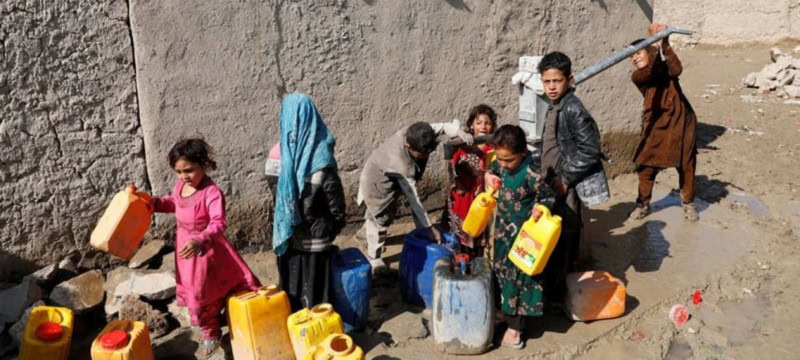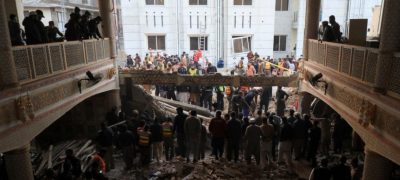ISLAMABAD: Recent developments have seen the formation of separate teams by the capital police and local administration, tasked with identifying and locating properties owned by Afghan nationals, compiling related records, and assessing their value.
However, when contacted for clarification, Deputy Commissioner Irfan Nawaz Memon denied the existence of any such teams within the local administration.
According to sources in the police and local administration, the teams’ primary objective is to identify and locate properties and businesses owned by Afghan nationals, regardless of whether they hold legal refugee status or are considered ‘illegal’ immigrants.
These teams will rely on revenue records and conduct physical inspections of properties and businesses. Moreover, they will scrutinize documents submitted for property purchases.
read more:Afghanistan Struck by Yet Another 6.3 Magnitude Earthquake
Details will be submitted to a task force established within the interior ministry, and properties and businesses acquired through forged documents will be subject to confiscation.
The Apex Committee on the National Action Plan, convened on October 3 and presided over by caretaker Prime Minister Anwaarul Haq Kakar, resolved to expel illegal foreign nationals and take strict action against their properties and businesses. A task force was established to investigate fake identity cards issued to foreign nationals, in addition to their properties and businesses.
While Pakistan is not a signatory to the 1951 Geneva Convention, it has extended humanitarian support to Afghan refugees. However, even registered refugees with proper documentation are not permitted to purchase properties. They are required to stay in official refugee camps, the sources revealed, with 44 of these camps located in Khyber Pakhtunkhwa, nine in Balochistan, and one in Punjab. Some refugees, instead of residing in these camps, have moved to urban areas in Sindh and Islamabad.
In addition to refugees, immigrants who crossed the border illegally have obtained forged computerized national identity cards (CNICs) and acquired properties in various cities, including Islamabad. They have also established businesses, either individually or in partnership with locals, using similar methods.
Once the teams identify the properties, they will submit details to the task force established within the interior ministry, under the supervision of the interior minister and comprising officials from intelligence and law enforcement agencies. Properties and businesses acquired through forged documents will be subject to confiscation.
To aid in this process, the capital police’s intelligence unit, known as the Special Branch, and the Counter-Terrorism Department will collaborate with the teams to identify and locate the properties and businesses.
Earlier, the capital police had given Afghan nationals 48 hours to move to refugee camps, including the one in the I-12 sector. The civic authority has already demolished two illegal settlements of Afghan nationals and conducted operations in other settlements.
Furthermore, an e-tagging system for foreigners living in the capital legally and with proper travel documents has been completed. A database was compiled by a unit of the Counter-Terrorism Department.
Meanwhile, the Ministry of States and Frontier Region’s Commissionerate for Afghan Refugees has issued a letter to various authorities, including the interior minister, home secretaries, and inspectors general of police in different provinces. The letter highlights that Afghan refugees with valid proof of registration cards and Afghan citizen cards can temporarily reside in Pakistan and can only be repatriated on a voluntary basis. The letter also emphasizes that harassment, arrests, and detention of registered Afghan refugees would negatively impact Pakistan’s image and goodwill earned over the last 43 years.
The ministry has requested that all relevant departments and agencies ensure that registered Afghan refugees holding proof of registration cards and Afghan citizen cards are not subjected to harassment or adverse actions while the federal cabinet makes a decision on the matter.









